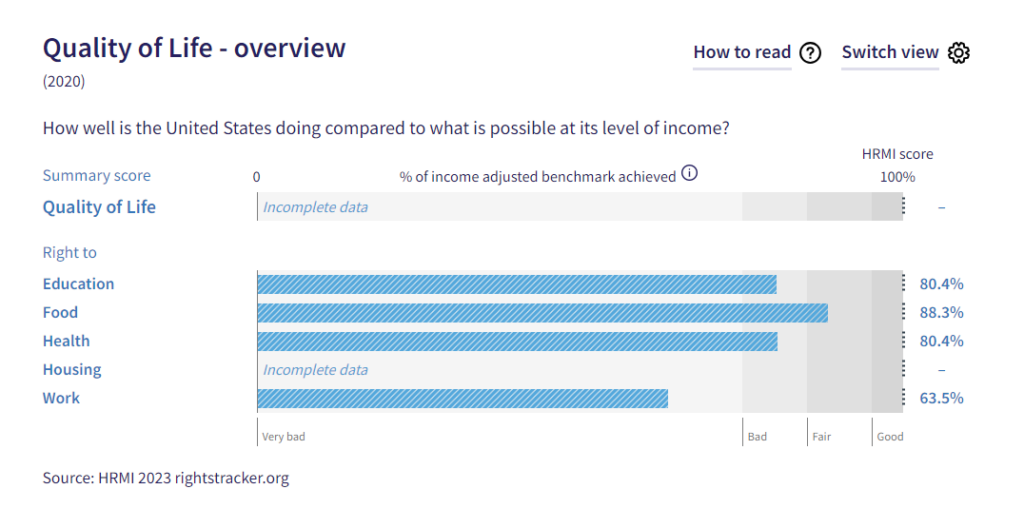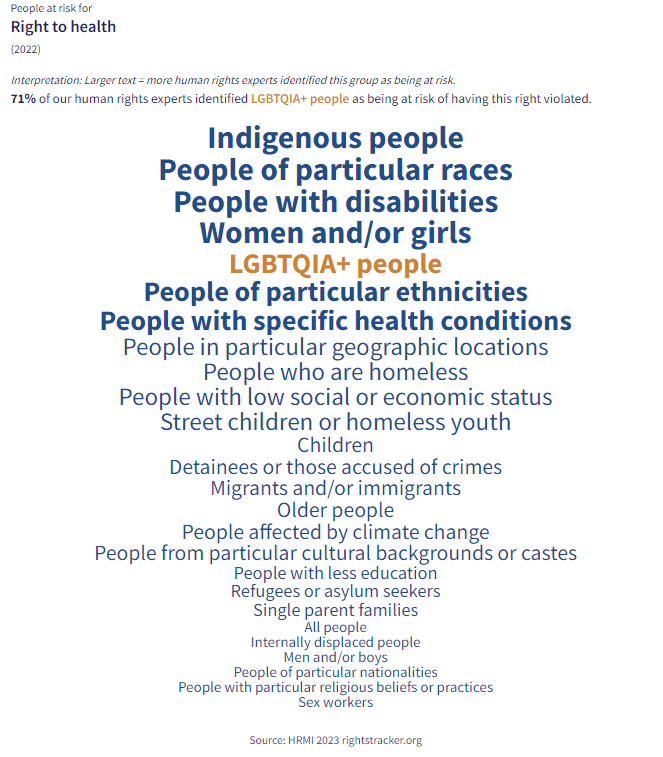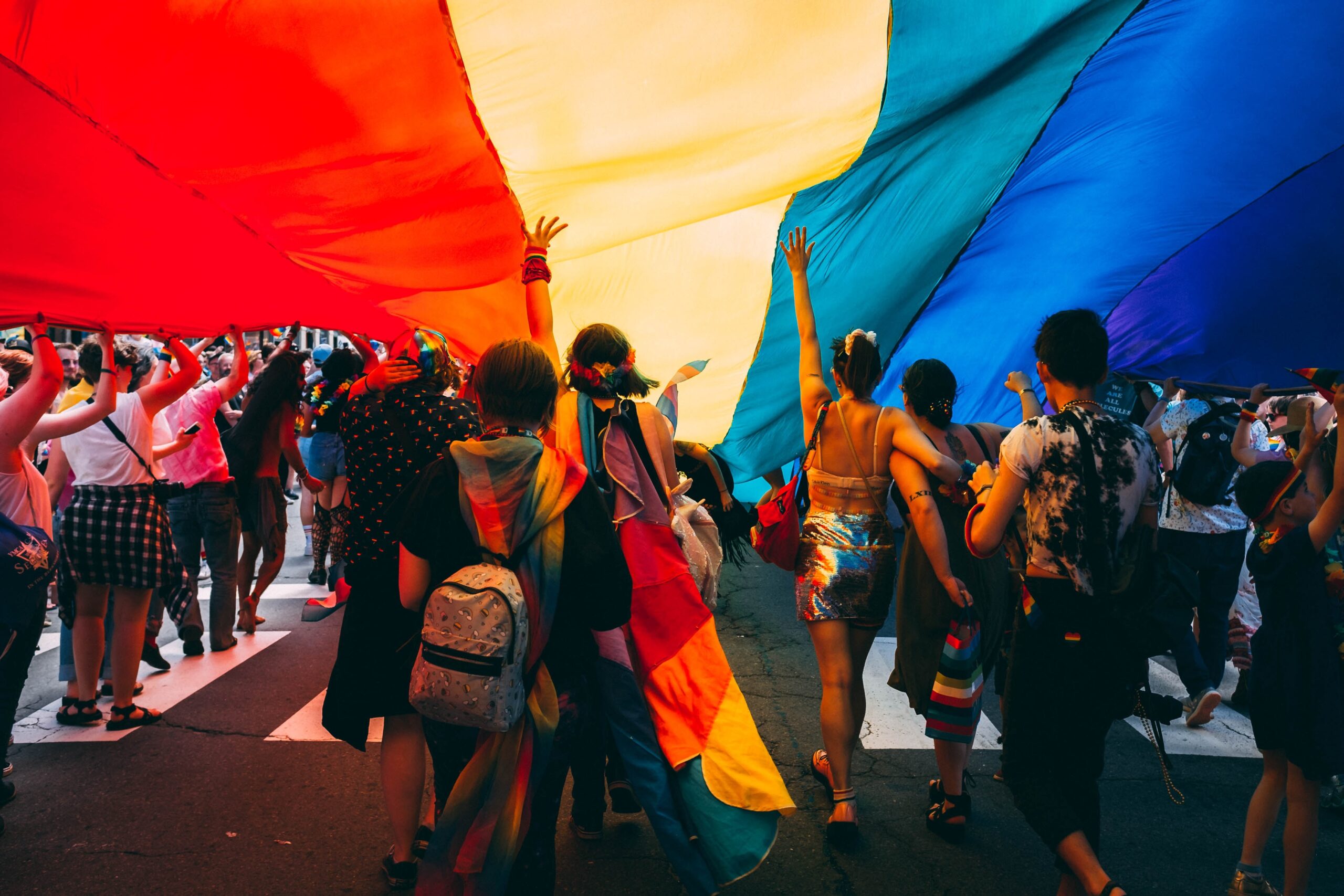LGBTQIA+ rights in the United States: failing to protect all people
Written by Bridgett Cox
In news that will shock some, and be wholly unsurprising to others, new data demonstrate that the United States is not doing well at protecting human rights. The Human Rights Measurement Initiative (HRMI) data paints a broad picture of the human rights environment in the US, including who is missing out on human rights protection. The picture is grim, especially for the LGBTQIA+ community.
The new data show that the LGBTQIA+ community is particularly at risk of human rights violations in the US, despite decades of progress. This comes in a global context of increased oppression of people based on their sexual orientation or gender identity.
There has been a surge in anti-LGBTQIA+ legislation in 2023 globally. In Uganda, a bill expanding on the 2014 Anti-Homosexuality Act was passed to include harsher punishments for those in the LGBTQIA+ community, including the death penalty. The government of India opposed many appeals to legalise same-sex marriage. In Russia, Parliament passed a law in 2022 banning ‘LGBT propaganda’ and demonstrations of LGBTQIA+ behaviour. These policies vary in severity for the LGBTQIA+ community, but all contribute to disenfranchising the community.
In 2023, there are only 34 countries in which marriage equality is protected by law, the United States being one of them, after legalising same-sex marriage in 2015 for all 50 states. However, the tide of anti-LGBTQIA+ legislation still made its way to the US. In 2023, there has been a rise of legislation directed against the LGBTQIA+ community, specifically targeting transgender people. While marriage remains protected for all people, these developments are concerning as they directly impact LGBTQIA+ rights.
A major concern of this new legislation is health, with bills such as the Senate Bill 140 in Georgia that prohibits certain forms of gender-affirming care for young trans people. Besides legal discrimination such as this bill, stigma around the LGBTQIA+ community, bullying, violence, financial barriers, lack of inclusive health programs, and family rejection are all contributing factors towards a predisposition for health and other healthcare related issues of LGBTQIA+ people.
The Human Rights Measurement Initiative data measure how well the United States is fulfilling its human rights obligations and highlight the people at risk of having their rights violated.

According to the Rights Tracker, the United States is only achieving 80.4% of its potential to guarantee the right to health, based on its income level – this score falls in the ‘bad’ range of HRMI’s measurements. Furthermore, a survey of human rights experts showed that 71% of experts identify LGBTQIA+ people as being at risk of having the right to health violated.

Healthcare accessibility is only one of the issues facing the LGBTQIA+ community. Across the United States, there are over 450 bills targeting LGBTQIA+ rights. The Texas Senate Bill 12 and 1601 prohibit and criminalise ‘certain sexually oriented performances’ on public property. This is an attack on drag performances, which have been an important form of self expression for the LGBTQIA+ community. This legislation depicts this form of expression as a sexual act and villainises performers, especially those who are gender non-conforming. This is not simply about drag performances.
In Florida, the House Bill 1557 passed in 2022, otherwise known as the ‘Don’t Say Gay’ bill, prohibits classroom discussion about sexual orientation or gender identity in certain grade levels. Considering same-sex marriage is legal and free speech is a considered a fundamental right, the United States is failing to protect the rights of all people, especially young people.
According to the HRMI data, as well as being at extra risk for violations of the right to health, LGBTQIA+ people in the US are at significant extra risk for the rights to housing and freedom of opinion and expression:
LGBTQIA+ rights have come a long way in the last 50 years, but the community is still far from freely enjoying all their human rights. With the rise of anti-LGBTQIA+ legislation in the United States, rights violations continue and progress is slowed.
The United States has a long way to go before it can confidently call itself the ‘Land of the Free’. Until all marginalised communities enjoy the same level of human rights, there is much work to be done. Find out about how you can support LGBTQIA+ rights initiatives in the United States.


